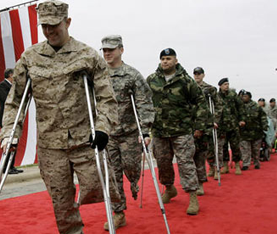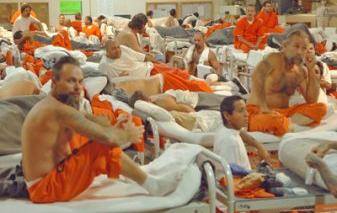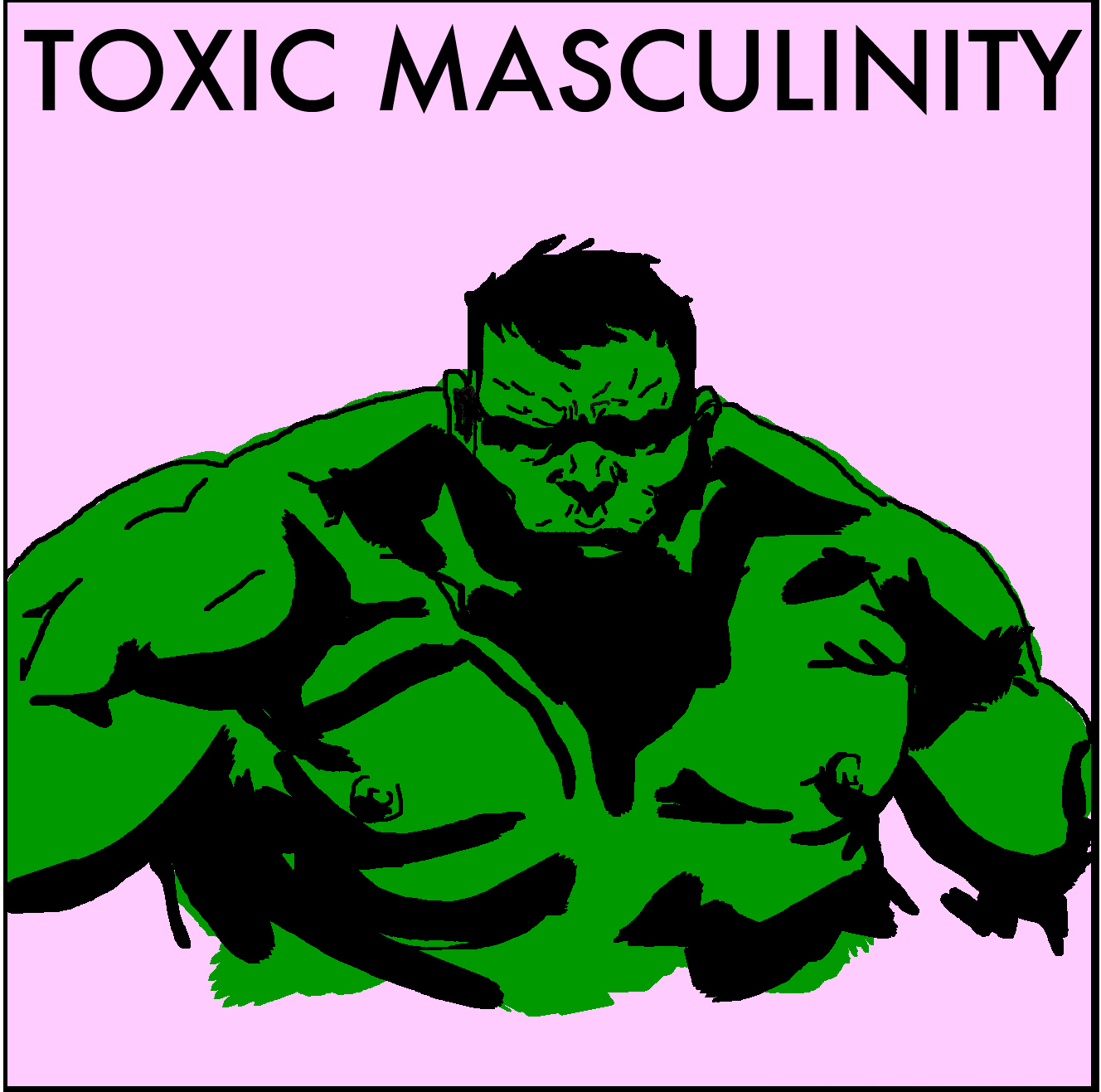


Pictures from Pirate's Cove, SF Chronicle and the California Department of Corrections




Pictures from Pirate's Cove, SF Chronicle and the California Department of Corrections
In More Content Magazine's April 2016 issue we asked the question "Who's the Victim: Men or Women?" The article provides a wide variety of statistics comparing the quality of life of men and women in the USA.
The conclusions: "In the USA:...Understanding that men experience a lower quality of life than women does not mean that sexism does not exist. Rather, it suggests that sexism is alive and well and men are victimized even more than women. We need to realize that sexism hurts everyone, not just females. Genuine freedom, equality and justice for all is the best solution, not just under the law, but in how we educate and raise our children and whenever we interact with each other."
Below are some fascinating excerpts from articles with more information and perspectives on "toxic masculinity" and how sexism impacts men as well as women. In addition, the fifth article somewhat contradicts the other articles and makes the case for women being genetically "more robust" physically than men. We highly recommend using the links to read the original articles in their entirety.
The Damage We Do to Boys and Men That Explains the Trump Presidency
Kali Holloway, Alternet 8-14-17
It is impossible to talk about Donald Trump—his election victory, his personal brand, his public persona—without also discussing toxic masculinity. This is a man who brought up the size of his penis during a political debate, who bragged about using his fame in the service of sexual assault, who recently interrupted a call with another world leader to hit on a nearby female reporter. Trump rode toxic masculinity and racial demagoguery to the White House, and he continues to embody and inflame both as a key strategy of his presidency.
But Trump is more than just a case study in male posturing and fragility; he’s a reflection of the culture that elevated and embraced him...If we are being honest with ourselves, we have long known that masculinity kills men, in ways both myriad and measurable. While social constructions of femininity demand that women be thin, beautiful, accommodating, and some unattainable balance of virginal and fuckable, social constructions of masculinity demand that men constantly prove and reprove the very fact that they are, well, men.
Both ideas are poisonous and potentially destructive, but statistically speaking, the number of addicted and afflicted men and their comparatively shorter lifespans proves that masculinity is actually the more effective killer, getting the job done faster and in greater numbers. The death toll of masculinity is attributed to its more specific manifestations: alcoholism, workaholism and violence. Even when it does not literally kill, masculinity causes a sort of spiritual death, leaving many men traumatized, dissociated and often depressed.
...When a group of 204 adults was shown video of the same baby crying and given differing information about the baby’s sex, they judged the “female” baby to be scared, while the “male” baby was described as “angry.” Intuitively, these differences in perception create correlating differences in the kind of parental caregiving newborn boys receive. In the words of the researchers, “it would seem reasonable to assume that a child who is thought to be afraid is held and cuddled more than a child who is thought to be angry.” That theory is bolstered by other studies Real cites, which consistently find that “from the moment of birth, boys are spoken to less than girls, comforted less, nurtured less.” We begin emotionally shortchanging boys right out of the gate, at the most vulnerable point in their lives.
It's a pattern that continues throughout childhood and into adolescence. Real cites a study that found both mothers and fathers emphasized “achievement and competition in their sons,” and taught them to “control their emotions”—another way of saying boys are tacitly instructed to ignore or downplay their emotional needs and wants. Similarly, parents of both sexes are more punitive toward their sons, presumably working under the assumption that boys "can take it.”...
Undeniably, these kinds of lessons impart deeply damaging messages to both girls and boys, and have lifelong and observable consequences. But whereas, as Terry Real says, “girls are allowed to maintain emotional expressiveness and cultivate connection,” boys are not only told to suppress their emotions, but that their manliness essentially depends on them doing so. Despite its logic-empty premise, our society has fully bought into the notion that the relationship between maleness and masculinity is somehow incidental and precarious, and embraced the myth that “boys must be turned into men... that boys, unlike girls, must achieve masculinity.”...
...In his book, Why Men Can’t Feel, Marvin Allen states, “[T]hese messages encourage boys to be competitive, focus on external success, rely on their intellect, withstand physical pain, and repress their vulnerable emotions. When boys violate the code, it is not uncommon for them to be teased, shamed, or ridiculed.” ..
That trauma makes itself plain in the ways men attempt to sublimate feelings of emotional need and vulnerability. While women tend to internalize pain, men act it out, against themselves and others. Real said that women “blame themselves, they feel bad, they know they feel bad, they'd like to get out of it. Boys and men tend to externalize stress. We act it out and often don't see our part in it...
..."Men’s willingness to downplay weakness and pain is so great that it has been named as a factor in their shorter lifespan. The 10 years of difference in longevity between men and women turns out to have little to do with genes. Men die early because they do not take care of themselves...
...Society has set an unfair and unachievable standard, and in trying to live up to it, many men are slowly killing themselves. It's time to move beyond these outdated ideas of masculinity and start seeing men as innately human, with no need to prove who they are, to themselves or anyone else.
Excerpted from "The Damage We Do to Boys and Men That Explains the Trump Presidency" from Alternet
Rebecca Solnit: if I were a man
The Guardian, 26 August 2017
"...I like a lot of things about being a woman, but there are times and ways it’s a prison, and sometimes I daydream about being out of that prison. I know that being a man can be a prison in other ways. I know and love a lot of men, straight and gay, and I see burdens they’re saddled with that I’m glad not to carry. There are all the things men are not supposed to do and say and feel; the constant patrol on boys to prevent them from or punish them for doing anything inconsistent with conventions of heterosexual masculinity, those boys for whom, in their formative years, faggot and pussy – being not straight or not male – are still often the most sneering of epithets.
Back in the 1970s, when some men were figuring out how their own liberation might parallel women’s liberation, there was a demonstration at which guys held a banner that said, “Men are more than just success objects.” Perhaps as a girl, I was liberated by expectations that I’d be some variation on a failure. I could rebel by succeeding, while a lot of white middle-class men of my era seemed to rebel by failing, because the expectations had been set so very high for them..."
...I like being a woman. I love watching and maybe smiling at or talking to kids I run into in parks and grocery stores and anywhere else; I’m confident no one will ever take me for a creep or a kidnapper, and I know that it would be more complicated if I were a man. There are more subtle advantages about the range of expression I’m allowed in my personal relations, including in my close, supportive, emotionally expressive friendships with other women – and, through all my adult life, my friendships with gay men, many of whom who have boldly, festively, brilliantly broken the rules of masculinity and helped me laugh at the gaps between who we are and who we’re supposed to be. Liberation is a contagious project, and growing up around people who took apart and reassembled gender helped liberate even a straight woman like me.
So I don’t wish I were a man. I just wish we were all free.
Excerpted from "Rebecca Solnit: if I were a man" from the Guardian

Picture from Skin Deep Magazine
Men still die before women. Is toxic masculinity to blame?
Haider Javed Warraich and Robert Califf, 26 June 2017 The Guardian
"...It seems paradoxical that a segment of the US population that has historically enjoyed greater power and privilege can also be considered vulnerable. But unexamined assumptions about biological determinism, compounded by cultural ideas about masculinity, have created a situation that places men at risk for worse health outcomes from a surprisingly early age.
The internalization of a male identity in which seeking help is seen as a sign of weakness begins in childhood and becomes particularly intense during adolescence.
This maladaptation is reflected in widening gender gaps in educational achievement, with girls outperforming boys not only in the United States, but around the world. These gaps persist throughout the educational experience, leading to concerns that boys are not being prepared for success in the modern economy.
At the same time, however, studies show that what men consider “manly” varies by culture, and therefore might be modifiable. When researchers interviewed white patients who had survived a heart attack, they concluded that their “fears of being seen to be weak contributed to delays in seeking medical care and led to reluctance to disclose symptoms to others.”
Yet the same study found that south Asian men “emphasized wisdom, education and responsibility for the family and their own health as more valued masculine attributes, and this contributed to a greater willingness to seek medical help”..."
Excerpted from "Men still die before women. Is toxic masculinity to blame?" in the Guardian

Picture from Jagged Little Edges
Is North America's opioid epidemic a crisis of masculinity?
Ashifa Kassam 12 July 2017 in the Guardian
"...Research that shows men are more likely to use illicit drugs, so it is perhaps logical that they are more likely to overdose. But the clinical psychologist Dan Bilsker argues that the figure suggests a relationship between the crisis and masculinity – one that may offer clues as to why the death toll continues to rise, and where the solutions might lie.
“I think we haven’t really thought deeply or well about who men are, about what the pressures on them are, what we need them to be,” he said.
Bilsker has spent years studying men’s psychological health, delving into why men live an average of four to six years less than women and are more likely to kill themselves. In some ways, the opioid crisis stems from the same tangled roots, he said. And as with many other health issues, its singular interaction with gender has been largely overlooked...
...Bilsker believes the government’s response would be different if those dying were 80% women. “I suspect there would be more groups – more people actively involved in raising public awareness – who would speak up and engender a greater sense of this being an important issue,” he said.
...When it comes to explaining why so many men are dying, Bilsker pointed to a variety of factors. Data shows that men are more likely to suffer severe workplace injuries, which could in turn make them more likely to be prescribed opioids for pain. “In our society, we slot men into the dangerous jobs, where they may be killed in small numbers, but they may well be injured,” said Bilsker.
Across Canada, many of those dying are men between the ages of 19 and 50 years old. “I think it’s easy to simply look at them as foolish risk takers,” said Bilsker. But to do so would minimise the extent to which our culture socialises and rewards men who are willing to take risks, he argued...
...That nudge toward risk is compounded by societal norms that discourage men from talking about emotional suffering or reaching out for help, he said. “One of the main things drugs are used for is killing psychological pain. They’re not just about taking something to become euphoric, they’re often escapes from one’s experience of unbearable pain,” he said. "
Excerpted from "Is North America's opioid epidemic a crisis of masculinity?" in the Guardian
The weaker sex? Science that shows women are stronger than men
Angela Saini, 11 June 2017 The Guardian
“Pretty much at every age, women seem to survive better than men,” says Steven Austad, an international expert on ageing, and chair of the biology department at the University of Alabama. For almost two decades, he has been studying one of the best-known yet under-researched facts of human biology: that women live longer than men. His longevity database shows that all over the world and as far back as records have been kept, women outlive men by around five or six years. He describes them as being more “robust”...
...Yet there is bizarrely little research to explain the biology behind this. What scientists do know is that this edge doesn’t emerge in later life. It is there from the moment a girl is born. “When we were there on the neonatal unit and a boy came out, you were taught that, statistically, the boy is more likely to die,” says Joy Lawn, director of the Centre for Maternal, Adolescent, Reproductive, and Child Health at the London School of Hygiene and Tropical Medicine. She explains that, globally, a million babies die on the day of their birth every year.
But if they receive exactly the same level of care, males are statistically at a 10% greater risk than females. What makes baby girls so robust remains mostly a mystery...
Wherever it comes from, women seem to be shielded against sickness later on. “Cardiovascular disease occurs much earlier in men than women. The age of onset of hypertension [high blood pressure] also occurs much earlier in men than women. And there’s a sex difference in the rate of progression of disease,” says Kathryn Sandberg, director of the Centre for the Study of Sex Differences in Health, Ageing and Disease at Georgetown University.
Austad found that in the United States in 2010, women died at lower rates than men from 12 of the 15 most common causes of death, including cancer and heart disease, when adjusted for age...
...Even when it comes to everyday coughs and colds, women have the advantage. “If you look across all the different types of infections, women have a more robust immune response,” adds Sandberg. “If there’s a really bad infection, they survive better. If it’s about the duration of the infection, women will respond faster.” One explanation for this is hormones. Higher levels of oestrogen and progesterone could be protecting women in some way, not only by making our immune systems stronger, but also more flexible. This may help maintain a healthy pregnancy. A woman’s immune system is more active in the second half of her menstrual cycle, when she’s able to conceive.
On the downside, a powerful immune response also makes women more susceptible to autoimmune diseases, such as rheumatoid arthritis and multiple sclerosis..."
Excerpted from "The weaker sex? Science that shows women are stronger than men" in the Guardian
![]() Back to Oranj Productions Home
Page
Back to Oranj Productions Home
Page
Contact Info
All content Copyright 1993-2017 Oranj Productions.
All Rights Reserved.